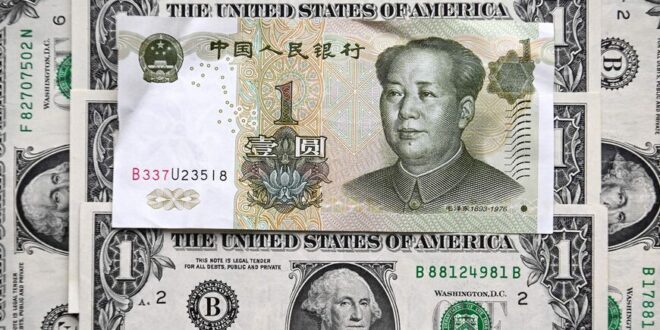Some countries in the region are increasingly looking away from the dollar.
The Iraqi Central Bank said on Wednesday that it will conduct trade with China in its currency, the yuan.
“Financing of foreign trade with China will be organized directly using the Chinese yuan,” the bank said in a statement.
The Central Bank specified two options for trading with China in yuan. The first involves strengthening the balances of Iraqi banks that have yuan. The second involves strengthening Iraqi banks’ balances with the Central Bank via the Central Bank’s accounts with Wall Street’s JP Morgan and Singapore’s DBS, according to the statement. This presumably means providing more cash to Iraqi banks, though the Central Bank did not provide more details.
A spokesperson for JP Morgan declined to comment further to Al-Monitor.
An Iraqi government adviser told Reuters Wednesday that this will be the first time Iraqi imports from China are priced in yuan. Previous imports were priced in dollars.
China’s state-run news outlet CGTN picked up the story Thursday.
Why it matters: The announcement is a further sign that some Middle Eastern countries are moving away from the US dollar — albeit slightly — toward the yuan. Saudi Finance Minister Mohammed Al-Jadaan told the World Economic Forum in January that the kingdom is open to trading in non-dollar currencies.
The Wall Street Journal reported last year that Saudi Arabia and China were discussing pricing Saudi oil sales to the People’s Republic in yuan instead of dollars.
In August of last year, Egypt announced it would issue bonds denominated in yuan. The plan has yet to come to fruition. The Egyptian news outlet Mada Masr reported in December that Egypt was in the process of obtaining $500 million in financing from China via yuan bonds.
Iran is particularly interested in reducing its use of the dollar due to US sanctions on the Islamic Republic. Iran and Russia announced last August they had started using their own currencies for trade.
Know more: Iraq is experiencing a shortage of US dollars at present, in part due to increased restrictions from the US Federal Reserve aimed at stopping dollar transfers from Iraq to sanctioned Iran. The shortage has led to the Iraqi dinar falling in value on the street against the dollar. The Iraqi Central Bank lowered the official exchange rate earlier this month in response.
 Eurasia Press & News
Eurasia Press & News




